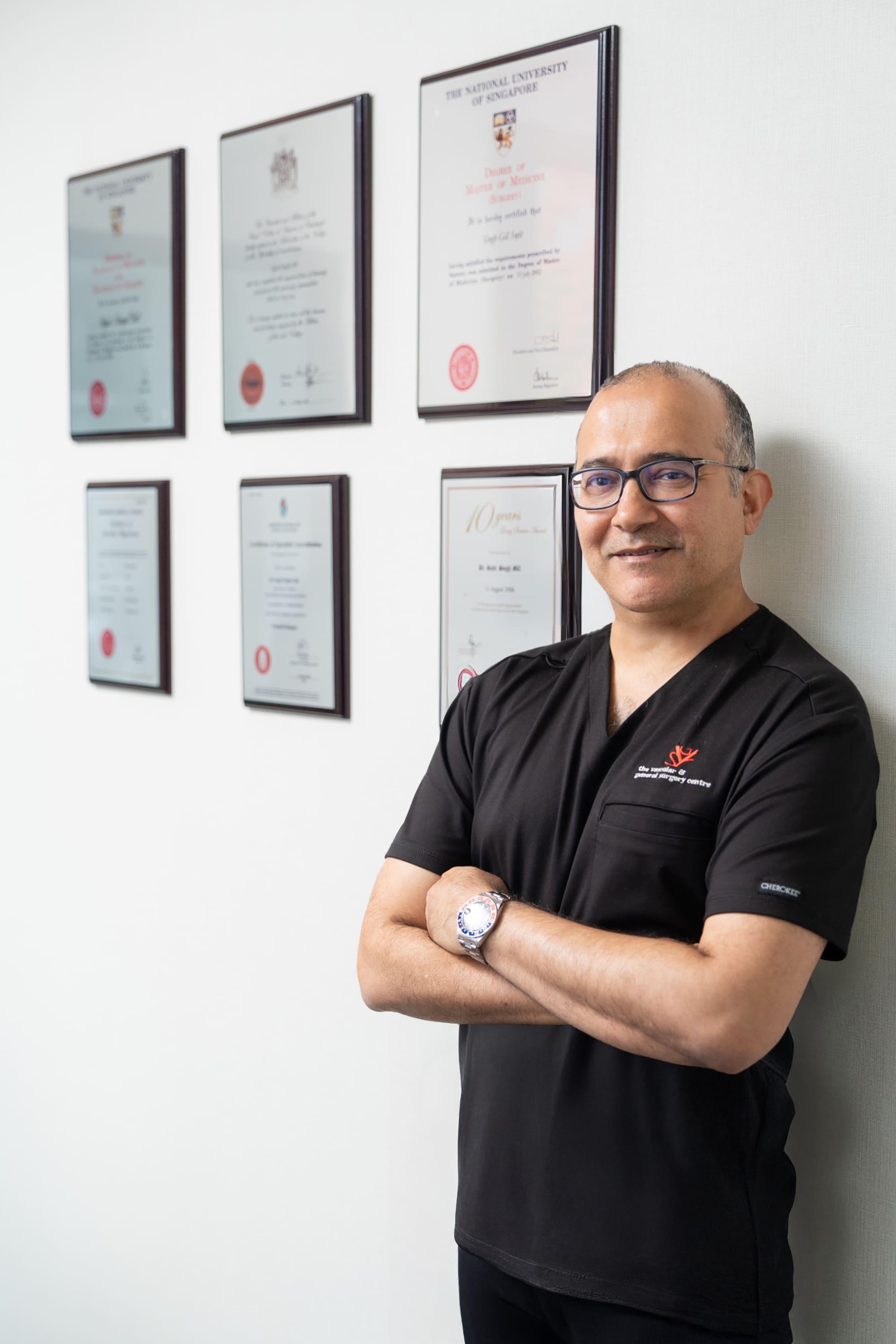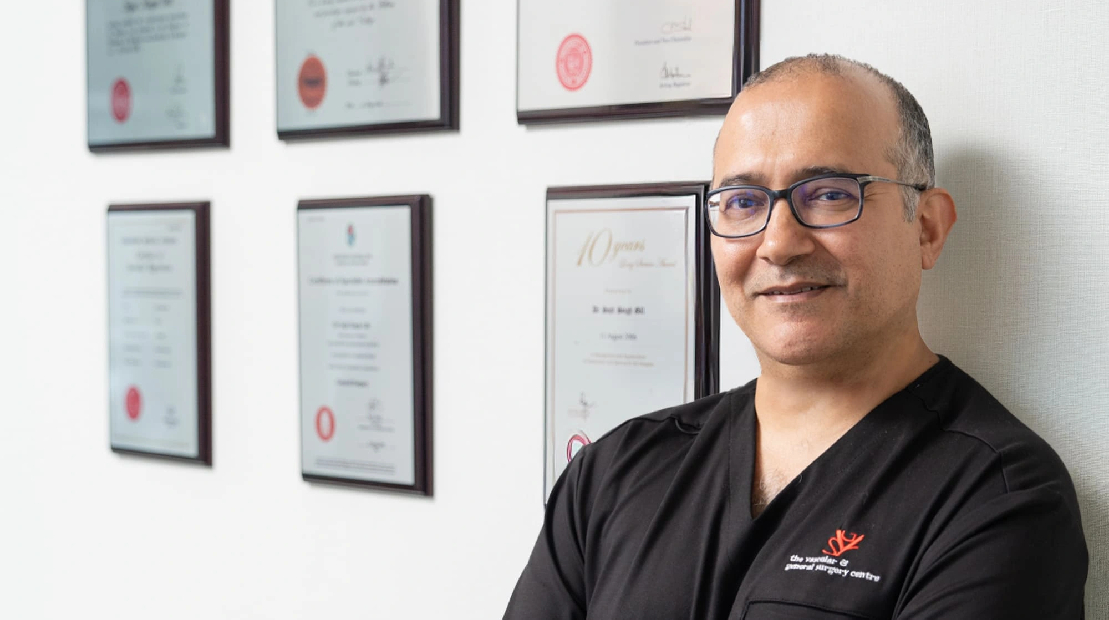Colorectal disorders are digestive conditions or diseases that affect the colon and rectum and range from mild to severe. Common symptoms of colorectal problems include rectal bleeding, blood in your stool, abdominal pain, and ongoing constipation or diarrhoea.
What are Some Common Colorectal Conditions?
There are many conditions that affect the colon and rectum. Some of the more common ones include:
- Haemorrhoids: Also known as piles, haemorrhoids occur when veins in the anus and lower rectum swell and cause pain, discomfort, and rectal bleeding. It is usually caused by excessive pressure from things like chronic constipation, chronic diarrhoea, chronic coughing, and prolonged sitting on the toilet.
- Anal Fissures: This refers to the tear or crack that forms in the tissue that lines the anus. Some of its causes include passing hard or large stools, chronic diarrhoea, or anal intercourse. Patients with anal fissures may experience significant pain during bowel movements. They may also notice blood in their stool.
- Diverticulitis: The diverticula are pouches or bulges that develop in the intestines. These pouches are generally not harmful unless bacteria get trapped inside them and causes an infection or inflammation. Diverticulitis refers to the inflammation in the diverticula, which causes abdominal pain, bright red blood in the stool, constipation, nausea and vomiting, and a distended abdomen.
- Inflammatory Bowel Disease (IBD): This is an umbrella term that refers to two conditions: ulcerative colitis and Crohn’s disease. These conditions are characterised by prolonged or chronic inflammation of the tissues in the digestive tract. Symptoms may include bloody stool, abdominal pain, tiredness, and prolonged diarrhoea.
- Colorectal Cancer: Colorectal cancer, which includes colon cancer and rectal cancer, is a disease that causes the cells in the rectum or colon to grow and multiply abnormally. It usually starts as a small, benign growth known as a polyp, which has the potential to turn malignant and cause colorectal cancer. Some of its symptoms include bloody stool, abdominal pain, fatigue, and unexplained weight loss; although they are usually only more evident in the advanced stages of the disease.




